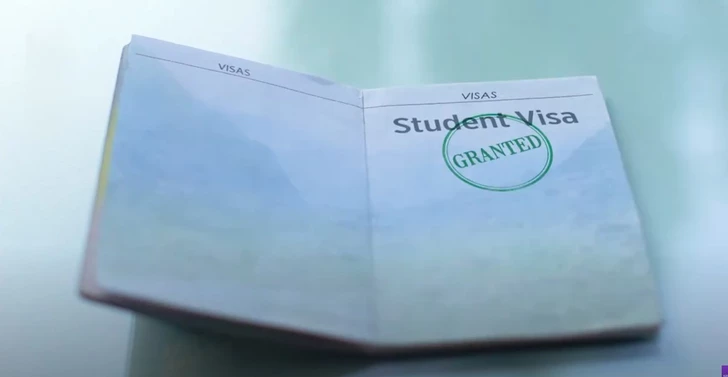Every year, more and more young Azerbaijanis pursue higher education abroad. But for many, the path to international education is blocked by an unexpected hurdle: getting a student visa.
Even after securing admission to prestigious universities, students often find themselves stuck in bureaucratic limbo — with visa delays stretching into months or, in some cases, ending in outright refusals.
The situation becomes particularly acute in the run-up to the academic year. Students expecting to begin classes in August or September are frequently forced to ask universities for permission to arrive late — or, worse, defer their studies by a semester or a full year, resulting in both psychological stress and financial losses.
According to education expert Khayyam Damirov, a successful visa application hinges on understanding the specific requirements of each country.
“Visa rules vary significantly,” Damirov explains. “Take Austria, for instance: applications must be submitted six months before classes start. Many students wrongly assume that an admission letter in June or July is enough. By then, it’s often too late — even if they’re accepted, they can’t leave the country.”
He advises working with agencies that specialize specifically in student visas. “If you’re using an agency, make sure they have real experience with student cases, not just tourist visas. A good agency with embassy ties can drastically reduce the risks.”
Financial Proof and Bureaucratic Traps
Another major hurdle: financial documentation. The UK, for example, requires a student to hold a bank account with the required funds 45 days before applying. Germany demands a blocked account in Deutsche Bank containing around €11,000 — to ensure the student can support themselves throughout their studies.
Although the official processing time for a visa is between two and six weeks, delays are common — particularly during summer, when embassy backlogs are at their worst. Mistakes in paperwork, unclear sponsorship details, or mismatches in financial information are common reasons for delays or rejections.
Embassies also assess the “migration risk” — the likelihood that a student might overstay their visa after graduation. This makes the process more stringent, even for genuine students. “But students aren’t typically viewed as high-risk migrants,” Damirov notes. “If someone’s enrolled, paid tuition, and shows they can support themselves, they’re far less suspicious than, say, a tourist who might not return home.”
What to Do If There’s a Delay or Refusal
In cases of visa delays, students should immediately contact their university to negotiate a late start or defer enrollment. If a visa is denied, Damirov strongly recommends reviewing the reasons for refusal in detail and consulting with educational advisors or legal experts to avoid repeating mistakes in future applications.
Ultimately, while gaining admission to a university might feel like the biggest challenge, the real test often comes afterward — navigating the complex, sometimes unforgiving world of international visa systems.


